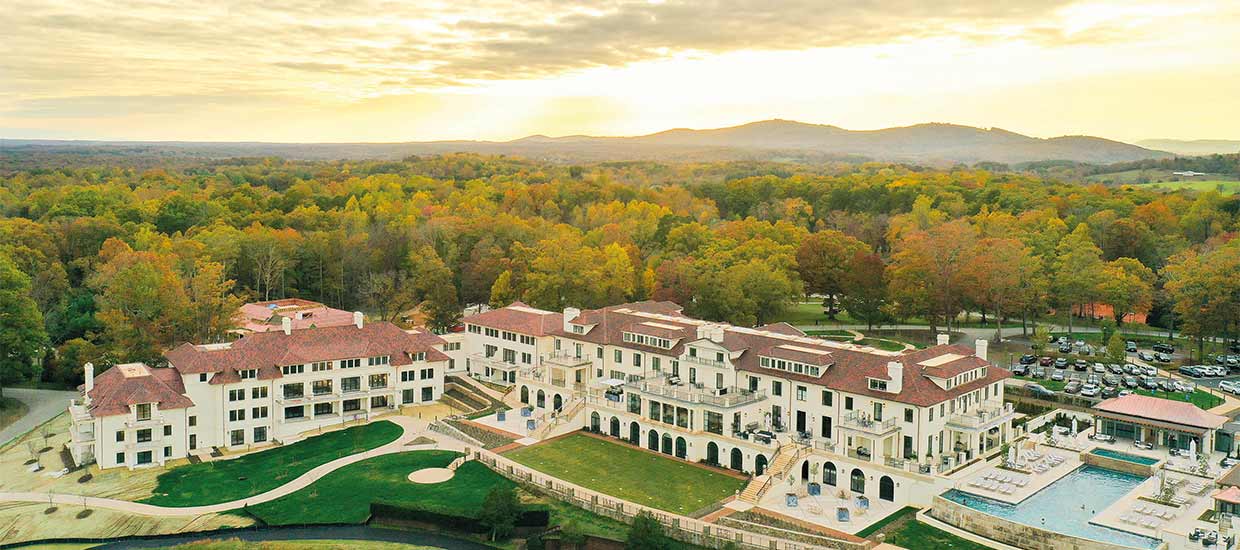STR Sees End to 114-Month Hotel Industry Expansion Cycle
August report shows weakness in rate, putting pressure on profits
September 19, 2019


After forecasting a certain strength in demand for 2019, STR, a data benchmarking, analytics and marketplace insights source for global hospitality sectors, is seeing a softening following its August report. In a year-over-year comparison with August 2018, the industry saw a flattened occupancy at 71.4 percent, with the average daily rate (ADR) up 0.9 percent at $132.47 and RevPAR up 0.9 percent to $94.55.
The hotel industry’s current expansion cycle has reached 114 months (March 2010-present) with year-over-year increases in revenue per available room (RevPAR) in 112 of those months. Even though room demand was strong, with two million more room nights sold than in the previous August, occupancy was flat when compared with last year.
Over the first eight months of the year, ADR growth has been below or just at the level of inflation, which creates “quite a bit of pressure” on profit margins, noted Jan Freitag, senior vice president of lodging insights, This is a trend, he said, that runs across categories, “and we do not expect the fundamentals to change much moving forward.”
Emerging Trends in Travel
STR cites other changes in the tourism industry that reflect greater trends in the society at large. As dynamics change with total income, rising life expectancy and technological developments that empower customers to plan their travel in the palm of their hand, STR has identified six key tourism industry trends that are matching these changes.
Global wanderlust is on the rise, reflected in last year’s total international tourist arrivals – that grew 6% as a result of increases in all world regions. This growth has been accompanied by a growing intent to spend, across both short breaks and longer holidays.
Easy and Effortless Booking
Convenience rules today’s consumer landscape, and technology has been a great facilitator. According to STR’s latest Consumer Travel Insights Survey, 69% of respondents said convenience was the most important aspect when booking their holiday, whether booking with an agent, provider or through an OTA. Technology has created a mostly seamless customer booking experiences and comprehensive research tools allow travelers greater empowerment over their travel decisions.
Experiential Travel
Consumers want an experience that’s enriching and authentic. In the tourism industry this means discovering new places and cultures, which turned out to be the fourth most influential factor travel planning, according to STR;’s research.
Affordable Luxury
Technology has disrupted the product and pricing chain in the traditional travel marketplace. That means a growing pool of accommodation options and expert advice available to travelers, coupled with a rise in spending power, has allowed consumers to upgrade in their travel choices. This accessibility in the luxury category has been seen in the rise of glamping, low-cost carriers and their pay-for-what-you-use business models, as well as customized and exclusive experiences in the destination.
Personalization of Travel
Consumers want to experience the destinations at their own pace. So, often, the travel plans made must be flexible and tailored to their a consumer’s personal interests. Travel agents still figure greatly in this planning. Approximately 43% of respondents in STR’s Traveler Trends Survey agreed with the statement “personalized holiday adverts or notifications make my travel planning easier.”
Responsible Tourism
With climate change afoot and with the fast disappearing of iconic natural lands, there is a growing conscious among travelers has presented new opportunities for tour operators to tap into this growing sensibility. Growing interest in the environmental, social and economic impact of travel impacts the destinations travelers choose, what they do in a destination and the products they purchase when traveling.




